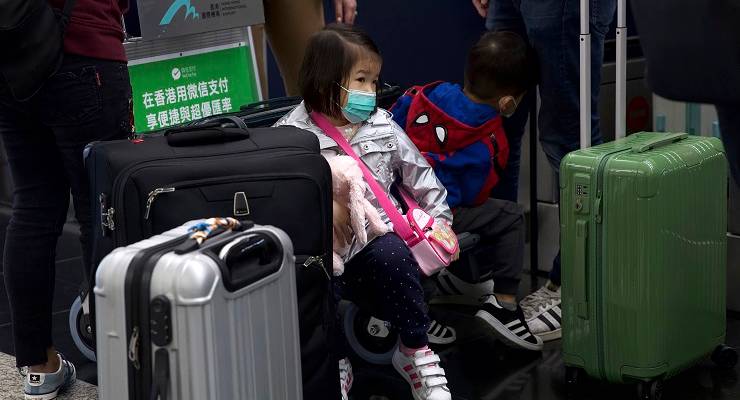
A lot like its relative neoliberalism, “globalisation” is the kind of phenomenon that exists as much in the eye of the beholder as it does in reality. It’s a grab-bag of related concepts that can be blamed, or given credit, for pretty much anything, depending on the agenda of the person employing the term.
Economic growth, pulling millions out of poverty, wage stagnation, job insecurity, automation, the rise of nationalism and racism, tax evasion — there’s something in globalisation for everyone.
And there’s an element of truth in it all. Globalisation is why you can now send your kids to school after spending $60 on some clothes and shoes at Big W rather than a fifth of the family’s weekly income on expensive, locally-made uniforms and footwear like families did in the ’70s.
Globalisation is why you can watch what you like, when you like rather than waiting for one of five TV networks to deign to show you something at their convenience.
Globalisation is also one reason why wages have stagnated, courtesy of large numbers of temporary workers and students expanding the labor pool, and why even services jobs are now being outsourced to other countries, rather than just manufacturing jobs like in the 1980s.
And globalisation is a reason why so many white males in Western countries feel threatened and insecure, economically and socially, in a way that, traditionally, they were privileged not to feel.
But big business never quite achieved its neoliberal dream of a fully open global economy where people, goods and money moved to wherever they could be used most effectively, unimpeded by silly nationalist constructs like borders.
“Security” always got in the way: security against terrorism, biosecurity, food security, financial security — uncompetitive industries the world over have grown adept at pleading that they represent a special “security” interest that requires border controls and protection against other countries.
Now coronavirus is slamming shut borders around the world, severing supply chains and waking us up to the extent to which the products and even services we take for granted are vulnerable to disruption.
Businesses are mortified. In an ill-timed article right before the virus erupted across Europe and Iran, the head of the Australia China Business Council (ACBC) demanded Australia lift its ban on the entry of Chinese students and invoked the example of Canada, which had not imposed a travel ban on foreign nationals coming from China.
We must, David Olsson pleaded, “show the same empathy, care and support for those that are affected by the virus as we have shown each other during the recent bushfires”. A failure to show sufficient empathy, he warned, “could have far-reaching and long-standing consequences”. The ACBC then launched a “We Stand With China” campaign.
There’s also been a flurry of articles in the international press about how travel bans don’t work or might even worsen the situation. It particularly miffs some commentators that World Health Organisation rules adopted in the wake of the SARS epidemic, intended to reduce reflexive border closures in response to health crises so as to “avoid unnecessary interference with international traffic and trade”, have been ignored by a number of countries, including Australia.
Examined closely, the argument that travel bans are ineffective in fact amounts to a series of unrelated claims: that they may lead to discrimination or, in the words of the head of the World Health Organisation, “increase fear and stigma, with little public health benefit”; that they have economic impacts on poorer countries in terms of lost trade and tourism; that they “may complicate risk management by overestimating the danger of the coronavirus“, “encourage people to shun public health workers or officials” and make international collaboration difficult.
As you might have noticed, none of those points actually relate to whether travel bans are “ineffective”.
They are indeed effective — even critics reluctantly admit “travel restrictions might slow, but cannot prevent, an epidemic. However, policymakers may well decide that slowing it is better than not slowing it”.
In terms or ameliorating the impact on health services, especially in Australia where health services are already stretched — slowing the virus is surely imperative, if it cannot be stopped.
By shining a light on the vulnerability of global supply chains to disruption from something as simple as particularly vicious respiratory virus, coronavirus might prompt a longer-term reaction against globalisation.
Can governments responsibly allow key industries like pharmaceuticals — in which Australian suppliers don’t even understand their own supply chains, and Americans wonder why China supplies 80% of American medicines — to remain vulnerable? How much more would consumers and health services have to pay if we decide to adopt a more protectionist — sorry, health security — approach to pharmaceuticals?
The same questions could be asked, and probably not answered effectively — in a number of other industries. And there will always be local interests eager to exploit “security” in their own interests, and at the expense of consumers and other business.
As with neoliberalism in recent years, globalisation advocates might discover that it is less irreversible, and more fragile, than they have been assuming, as the shutters go up at airports around the world.








Crikey is committed to hosting lively discussions. Help us keep the conversation useful, interesting and welcoming. We aim to publish comments quickly in the interest of promoting robust conversation, but we’re a small team and we deploy filters to protect against legal risk. Occasionally your comment may be held up while we review, but we’re working as fast as we can to keep the conversation rolling.
The Crikey comment section is members-only content. Please subscribe to leave a comment.
The Crikey comment section is members-only content. Please login to leave a comment.